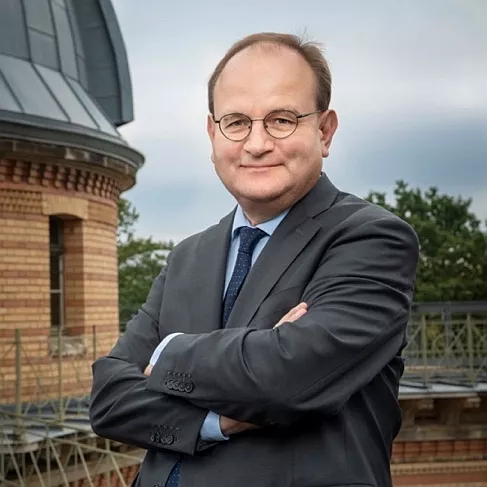AN EVENT HOSTED BY THE ENVIRONMENTAL DEPARTMENT OF THE TUM STUDENT COUNCIL!
Tuesday July 11, 6:30 pm – 8:30 pm
Max-von-Bauernfeind Lecture Hall (HS2750), Arcisstr. 21, TUM Main Campus
Climate policy today is facing both an ambition and an implementation gap. We need to realize that today's decisions affect future generations and limit their options for action.
In the EU, we have committed to climate neutrality and net negative after 2050. With "Fit for 55", probably the most important and comprehensive climate protection program has been launched. But there is no time for "regulatory fatigue"; the ESABCC recently launched the next phase of climate policy with its proposal on a 2040 climate target and GHG budget 2030-50. The question is whether the EU climate architecture is fit for net-zero. Climate neutrality means that residual emissions have to be balanced by removals. For this we need a new governance system (esp. due to non-permanence of many CDR options). The 21st century will have planetary waste management as a core task. The EU needs new institutions to cope with this challenge, especially a European Carbon Central Bank.
Mr. Edenhofer is director and chief economist at the Potsdam Institute for Climate Impact Research (PIK) and director of the Mercator Research Institute on Global Commons and Climate Change (MCC). Furthermore, he is professor at the Technical University of Berlin and considered one of the world’s leading experts on the economics of climate change. His memberships include, among others, the German Academy of Science and Engineering acatech and the German Academy of Sciences Leopoldina. From 2008 to 2015, Ottmar Edenhofer served as Co-Chair of Working Group III of the Intergovernmental Panel on Climate Change (IPCC). Edenhofer’s scientific expertise is sought by policy and international organizations likewise. He has published articles in a number of peer-reviewed journals and authored a number of books. The fourth year in a row, Ottmar Edenhofer belongs to the 1% of the most cited scientists worldwide in the category “interdisciplinary science” according to the Web of Science citation index.
-
Agenda
At 6:30 pm we will share free food from “Foodsharing” and the Environmental department is giving short insights into its work and member opportunities.
The talk itself starts at 7 pm and will be held in English as well. There will be sufficient time for questions from the audience after Prof Edenhofer's presentation (overall about 90 min).
As usual, we will offer an Hybrid Mode (Zoom).
Don't miss it! And please share and bring your friends, colleagues, fellow students and professors with you
- Follow the Lecture Series on our Website for additional information: https://umwelt.asta.tum.de/en/ringvorlesung/
- Or Instagram: https://instagram.com/umweltreferat?igshid=MmJiY2I4NDBkZg==
